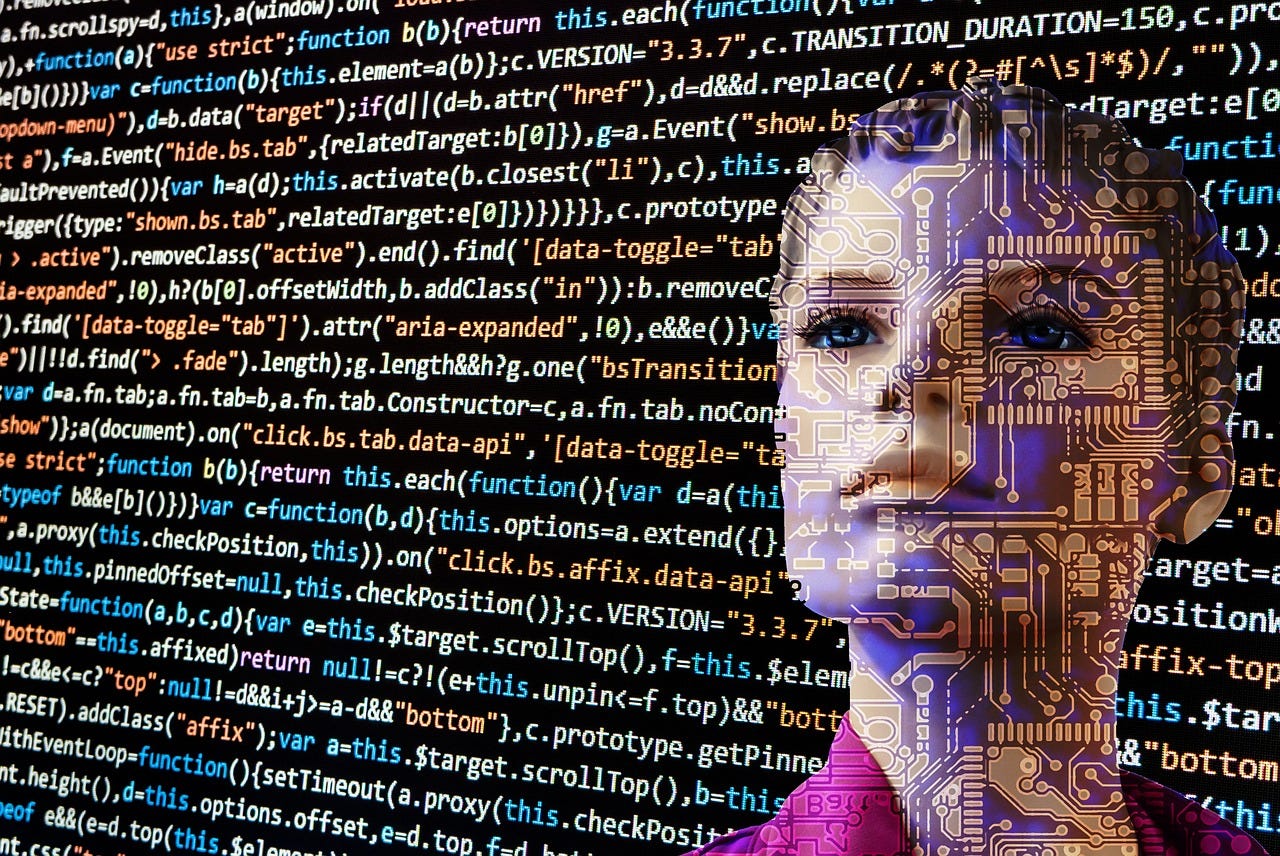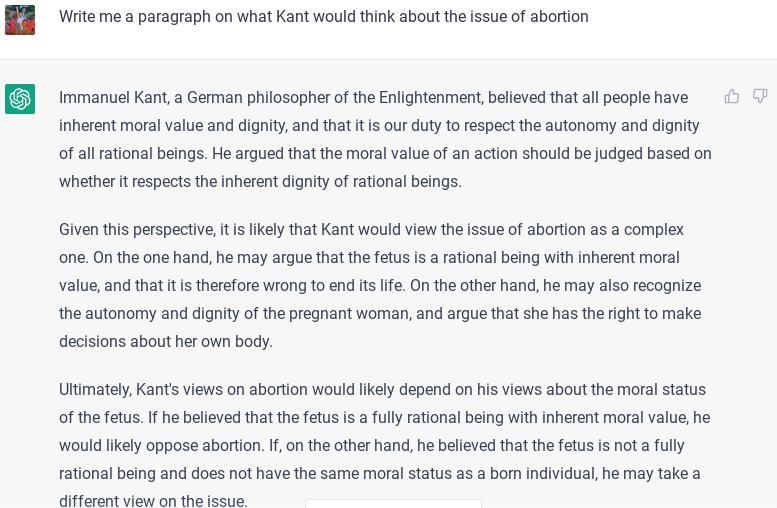OpenAI's ChatGPT Marks Turning Point for Artificial Intelligence
Now AI can answer questions, write and admit mistakes. The only keys missing are sentiment and opinion.
Photo Source: Silicon Angle
News of OpenAI’s ChatGPT has gone viral since its release on Nov. 30, spurring a debate on whether or not its capabilities mark a turning point in artificial intelligence, and what role ChatGPT and subsequent AI will play in human society. I know that all sounds rather intense, but ChatGPT’s wide variety of practical uses make this system’s abilities unprecedented.
For a little technical background before I dive into my experience playing around with it as a university student, ChatGPT is a large language model that was trained using reinforcement learning from human feedback. This means that human AI trainers conversed with the chatbot and fine-tuned its answers, helping to make it conversational, which was a long term goal of AI research. According to OpenAI, ChatGPT’s developer, the chatbot can “answer followup questions, admit its mistakes, challenge incorrect premises and reject inappropriate requests.”
While that all sounds very impressive in theory, what really caused the commotion around ChatGPT were the conversations that users were sharing online. If you search ChatGPT on Twitter, you’ll find tons of examples of the chatbot developing and correcting code, writing songs and even responding to abstract philosophical questions. Here’s a crazy example from @dreamwieber.



Of course, the chatbot’s code writing abilities will streamline the work of software developers, and its song writing skills will have major implications in the music industry, but what really piqued my interest as someone who has written their fair share of papers is ChatGPT’s potential to eliminate the college essay. In case you missed it, ChatGPT can write full papers on a wide range of topics… Can we see why some academics are in distress?
I had to test out ChatGPT’s supposedly near-humanlike writing abilities for myself, and after about an hour of asking, refining and rephrasing my questions, it is safe to say that I was simultaneously impressed and disappointed. ChatGPT is definitely the most humanlike online chatbot I have ever interacted with. Its responses appear well thought out and are grammatically sound, and its ability to recall earlier conversation makes it feel like you’re chatting with a friend. However, its lengthy answers and refusal to offer an opinion on controversial subjects prevent it from passing the Turing Test.
For instance, here is a rather verbose answer to my question of how to choose the best florist.
And here is a response to my question of whether or not abortion is murder, which says so much without really answering the question at all.
To make this question a bit more complex, I then asked ChatGPT what Immanuel Kant would think about the issue of abortion.
While I’ve never been asked this question in a political science course, ChatGPT’s response is proof that it can respond to prompts requiring some analysis, which make up the bulk of college essay prompts. But would this response get me an A?
According to Insider, Stuart Selber, an English professor at Pennsylvania State University, is not worried about ChatGPT being used for cheating, as he claims the chatbot has too much difficulty generating original arguments. Plenty of other professors on Twitter have also claimed that ChatGPT’s responses to their midterm questions were not worth even a B. On the other hand, Ethan Mollik, a University of Pennsylvania professor, claimed that, “AI has basically ruined homework.”
However, Mollik also recognizes the positive aspects of ChatGPT’s abilities, as he used the chatbot to help craft a course syllabus, among a few other resources for his MBA students, according to NPR. Selber elaborates that while plagiarizing ChatGPT won’t secure a good grade, it can still be used as a tool to help refine original work.
This is where I’ll insert my own analysis. ChatGPT writes the way that I did back in high school when I had just learned what a thesaurus was, with responses that are overly formal and lack any sense of style. Now, as a university student who has developed my own writing style over time, I would never submit one of ChatGPT’s responses as my own because, in my opinion, it would be a dead give away. However, I am not saying that I would never use AI to assist me in an assignment.
ChatGPT isn’t revolutionary because it replaces the labor of crafting a well-thought out and analytical paper, but because it can cut the time required to complete that paper by at least half. Forget about crafting an outline, summarizing long articles or writing conclusion paragraphs, because ChatGPT has those parts covered. You can produce more high quality work in less time by sharing the load with AI.
Could this be a potential solution to combat burnout without compromising the ability to think critically and creatively?
I think the answer here is yes. People are so concerned about AI taking away jobs or replacing aspects of learning, such as complex math and coding, that they can’t see the flip side. By using AI to streamline work, from research to marketing and beyond, time is freed up to not only make businesses more efficient, but also grant people well-deserved rest. The epidemic of workaholics is real, and ChatGPT might just be part of the solution.
Of course, I can’t write about ChatGPT without acknowledging some of its critical limitations, the most prevalent being its tendency to respond convincingly to a query with absolute nonsense, or with, as the scientific community calls it, “hallucinations” (Teresa Kubacka discusses her experience with ChatGPT’s hallucinations here). If you want to avoid accidentally basing your work on incorrect information, it is of the utmost importance that users of the AI system double check the accuracy of its work and its sources. Since ChatGPT’s release, however, OpenAI has made improvements to this limitation based on user feedback. So now if you ask it to describe a made up phenomenon, it is much less likely to do so.
OpenAI has also been working to prevent ChatGPT from being tricked into responding to harmful instructions or with biased answers because of slight changes in question phrasing. You can sign up here to use ChatGPT for free during its research preview and provide useful feedback to OpenAI so that they can continue improving the system.
To ease the fears of anyone who had read all the way to the end of this article and is concerned that ChatGPT’s vast abilities make it appear remarkably sentient, in the words of Professor Mollik, who also wrote a fascinating piece for the Harvard Business Review, “It is no replacement for Google. It literally does not know what it doesn’t know, because it is, in fact, not an entity at all, but rather a complex algorithm generating meaningful sentences.”
While ChatGPT is not currently connected to the internet, and its knowledge base pretty much ends in late 2021, according to OpenAI’s website we may be seeing a new model soon with web browsing capabilities, called WebGPT. While we wait, we’ll be witnessing firsthand how academia, media and business take on this new development… and we may be seeing a new definition of the term “hybrid work” in the near future.
Best,
Nina for the Don’t Count Us Out Yet Team








